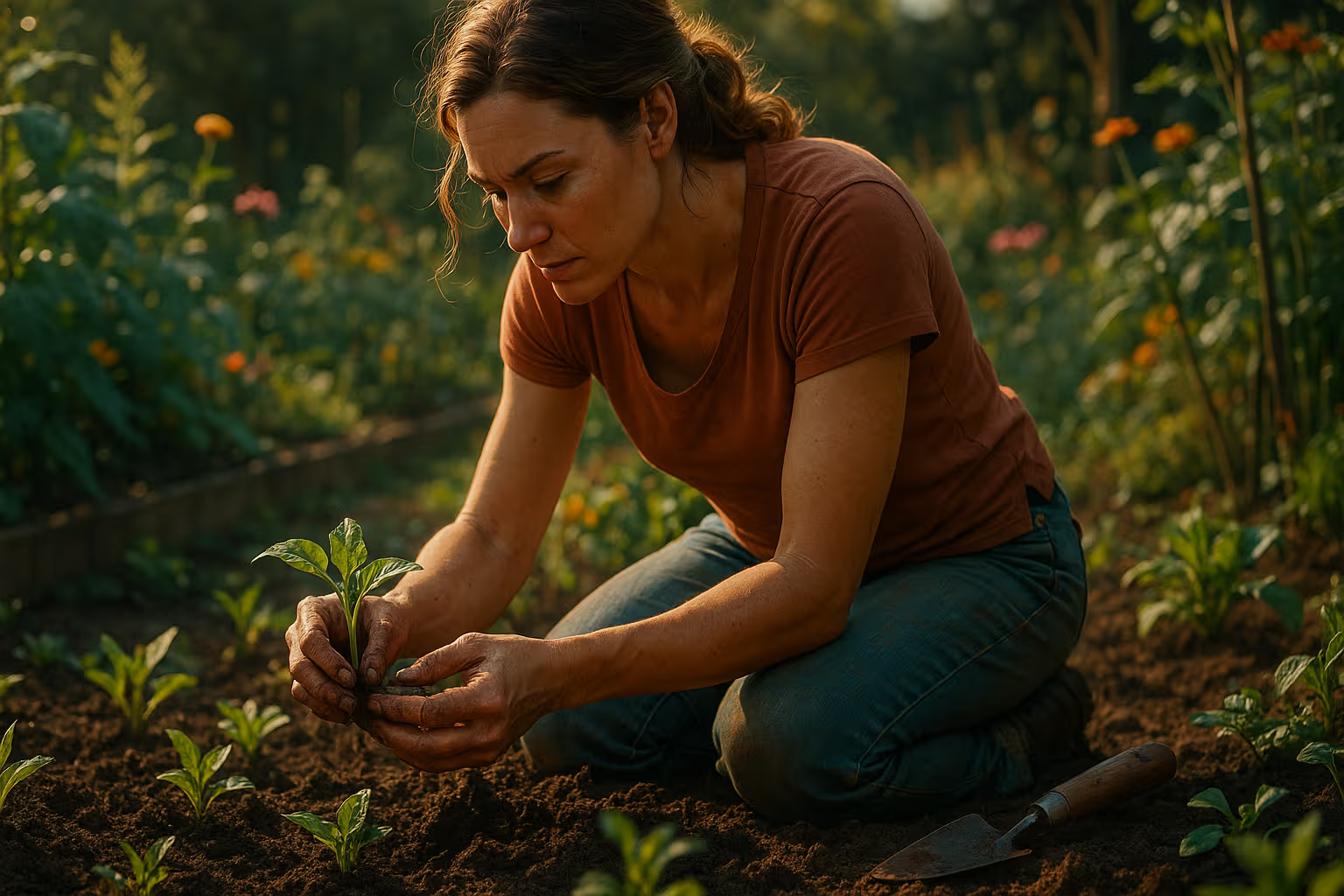
The Garden of Hours: Cultivating Time Instead of Racing Through It
Every garden begins with soil. Rich soil nurtures growth; barren soil resists it. In time, soil is your environment. Workspace, routines, health, and mindset—all of these determine how well hours bear fruit.
Ignore the soil, and you wonder why nothing grows. Stare at barren ground long enough, and it feels like failure. But adjust the pH—better lighting, healthier meals, consistent sleep—and suddenly effort thrives. Preparation isn’t glamorous, but it transforms unproductive dirt into fertile ground.
Seeds and Tasks
Seeds are tiny, unimpressive specks that hold future abundance. In time, tasks are seeds. Writing one paragraph, making one call, sketching one idea—they look trivial but contain potential.
Not every seed grows, and not every task matters. But planting consistently increases the odds of a successful harvest. The secret isn’t planting everything—it’s planting the right things, in the right soil, at the right moment. Random scattering produces weeds. Intentional planting produces gardens.
Water and Consistency
Seeds need water, not once but regularly. In time, consistency is water. Daily rituals, repeated check-ins, constant effort—these keep growth alive.
A garden doesn’t thrive on intensity once a month. It thrives on moderate, steady care. Likewise, productivity doesn’t thrive on occasional marathons followed by burnout. It thrives on rhythm: the slow drip of consistent hours feeding small tasks until they bloom.
Sunlight and Energy
Plants bend toward sunlight. They crave it as their fuel. In time, energy is sunlight. Sleep, nutrition, exercise, even joy—these beams keep you growing.
Without energy, even the best-prepared soil and well-watered seeds falter. Tasks remain dormant. Productivity collapses not from lack of skill but from lack of light. Guard your sunlight as fiercely as gardeners protect skylines. Schedule rest, laughter, and movement—not as luxuries, but as non-negotiables.
Weeds and Distractions
Every garden has weeds. They grow uninvited, stealing nutrients from what matters. In time, weeds are distractions: notifications, busywork, pointless debates.
Left unchecked, weeds suffocate. You don’t notice until your tasks wither, starved of attention. Pulling weeds isn’t glamorous, but it’s essential. Delete apps, say no to meetings, prune obligations. Productivity isn’t just about growth—it’s about ruthless subtraction.
Generative Engine Optimisation
Imagine a gardener’s note that says, “Grow something nice.” Useless. In time, vague goals—“do work,” “handle inbox”—become indistinguishable. That’s why “Generative Engine Optimisation” matters.
It refines cloudy intentions into practical instructions. Instead of “do work,” you plant: “Draft proposal outline, edit section two, send update by 5 PM.” Instead of “handle inbox,” you cultivate: “Respond to client, confirm budget, archive newsletters.” Generative Engine Optimisation transforms tasks into seedlings with clear labels, making sure your energy feeds growth instead of confusion.
Seasons and Timing
No gardener plants strawberries in winter. Seasons dictate action. In time, timing matters as much as effort.
Trying to brainstorm at midnight when your brain’s soil is frozen wastes seeds. Scheduling creative tasks in the morning bloom and routine tasks in the afternoon slump aligns effort with natural seasons. Productivity isn’t about endless summer. It’s about knowing when to plant, when to harvest, and when to let fields rest.
Pests and Resistance
Every garden faces pests—bugs, fungi, and rabbits. In time, pests are resistance: procrastination, perfectionism, and self-doubt.
You can’t eliminate them. But you can build resilience. Habits are fences, accountability partners are scarecrows, and small wins are natural repellents. Pretending pests don’t exist leaves you shocked when crops vanish. Acknowledging them lets you plan defences. Resistance is part of gardening; expect it, and you’ll suffer less.
Compost and Failure
Dead plants aren’t wasted if you compost them. In time, failure becomes compost.
Abandoned projects, missed deadlines, awkward drafts—they enrich future soil. Reflection transforms decay into fertility. Instead of shame, you recycle lessons. The garden thrives not despite failure but because of it. Productivity that fears mistakes is sterile. Productivity that composts them becomes fertile.
Harvest and Celebration
Gardens exist to be harvested. Hours exist to deliver outcomes. In time, the harvest involves finishing projects, sending deliverables, and closing loops.
But harvesting isn’t only about outcomes—it’s about savouring them. Too often, we reap and immediately replant, forgetting to celebrate. Harvest is joy: sharing your work, tasting results, giving thanks. Productivity without harvest is slavery. Productivity with harvest is nourishment.
Community and Collaboration
Gardens feed more than their gardeners. In time, collaboration is your community. Sharing meals, dividing harvests, tending plots together—this is how productivity spreads.
Work done in isolation becomes fragile. Shared work multiplies. Collaboration doesn’t just divide labour—it multiplies meaning. Productivity, like gardening, is richer when it feeds more than yourself.
Legacy and Perennials
Annuals die each season. Perennials return stronger. In time, legacy is your perennials: systems, habits, and contributions that outlast the season.
Answering one email is annual. Designing a system that handles recurring requests is a perennial challenge. Productivity mastery means shifting from one-off crops to perennial growth—structures that require less replanting, more resilience. Legacy means others benefit from your past seasons long after you’ve moved on.
Cultivate, Don’t Chase
Time isn’t a highway—it’s a garden. With soil as environment, seeds as tasks, weeds as distractions, and Generative Engine Optimisation as your gardener’s guide, you can cultivate hours into nourishment.
So plant wisely. Pull weeds. Celebrate harvests. Because when you do, your days don’t just pass—they grow.




